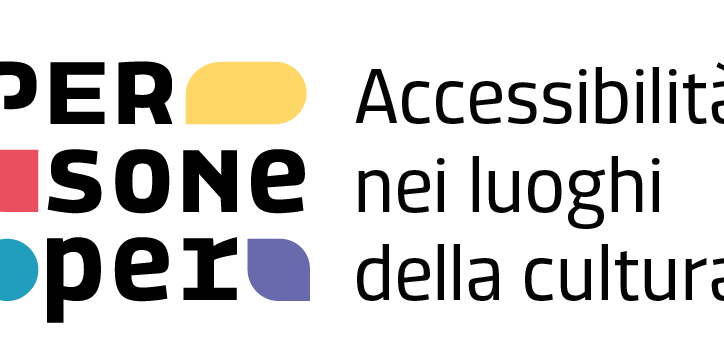
The first National Training Plan on "Accessibilità nei luoghi della cultura"
"Personeper. Accessibilità nei luoghi della cultura"
Improving the accessibility of institutions and cultural sites, reducing physical, sensory, and cognitive obstacles and barriers that limit participation in cultural heritage. This is the goal of Personeper. Accessibilità nei luoghi della cultura, the national training plan for those working in cultural sites to enhance the accessibility of spaces, content, and services.
With a total allocation of 1,085,000 euros, Personeper is funded by the European Union – NextGenerationEU within the framework of the PNRR Culture 4.0 through Investment 1.2 Removing physical and cognitive barriers in museums, libraries, and archives to enable broader access and participation in culture. The project is promoted and carried out by the Direzione generale Musei of the Ministry of Culture as the implementing body and is managed by the Scuola nazionale del patrimonio e delle attività culturali.
«With the training Personeper. Accessibilità nei luoghi della cultura, we have chosen to make a structural and strategic investment in the skills of cultural operators so that accessibility becomes a standard design criterion in cultural venues – comments the Direttore generale Musei, Massimo Osanna –. A challenge that concerns not only the removal of obstacles but the construction of a widespread, competent, and shared culture of accessibility.»
Recipients
The audience of recipients interested across the entire national territory is broad and diverse, and Personeper also reaches them thanks to the involvement of an equally large group of interlocutors and partners: staff of museums, archives, libraries, archaeological parks, and public and private cultural institutions, as well as professionals engaged in various roles in cultural sites.
The training offer, completely free, is broad and articulated to meet the needs of different professional categories and organizational functions.
Online and in-person courses
Until June 2026, in-person courses are scheduled throughout the national territory along with 4 online courses that will be made available on the platform fad.fondazionescuolapatrimonio.it, for more than 600 hours of training and 180 teachers. Study visits abroad are also planned to learn about strategies and best practices adopted in countries at the forefront of accessibility issues such as Portugal and Finland.
Other initiatives
Alongside training activities, Personeper provides activities of in-depth studies and of dissemination are included:
- A research on national and international policies and practices implemented over the last five years to improve accessibility in museums, archives, and libraries – conducted in collaboration with the Department of Arts at the University of Bologna –: it aims to contribute to the understanding of a very complex field and to guide the transformation of cultural venues into truly accessible and participatory spaces;
- a dedicated editorial series, with foreign contributions translated into Italian for the first time, original commissioned contributions, and an illustration apparatus: each publication addresses a major issue from a cross-cutting perspective across different cultural sites;
- the website personeper.it, the first website in Italy entirely dedicated to accessibility in cultural sites, is online to support a broader dissemination of principles, values, norms, and practices.
The Method
«The Scuola nazionale del patrimonio e delle attività culturali stands alongside the Ministry of Culture for the training of professionals, aware that investing in skills means strengthening the future of the country’s cultural system – states Onofrio Cutaia, Commissario straordinario of the Scuola nazionale del patrimonio e delle attività culturali –. The plan we present today is the result of intense collaboration with institutions and experts.»
The plan originates from a long and careful activity of listening and dialogue with organizations, territories, and those who work daily in cultural venues. This resulted in a training offer providing concrete tools to face the accessibility challenge. A contribution to collective, active, and conscious participation in cultural heritage.
Go to courses on fad.fondazionescuolapatrimonio.it